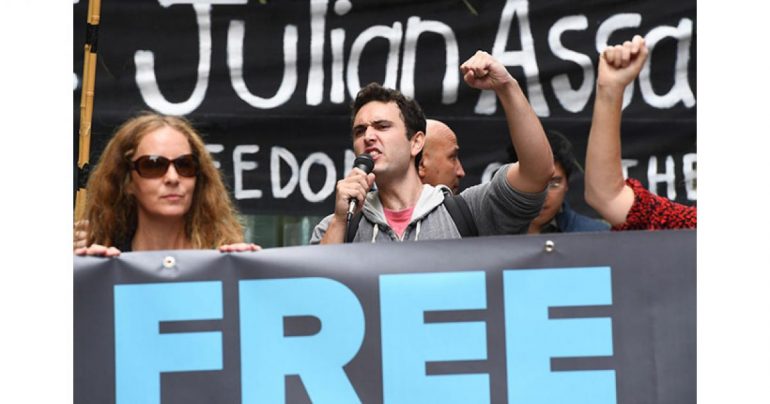Julian Assange has attempted to set up an "espionage center" inside the Ecuadorian embassy in London, Latin American President Lenin Moreno said in an interview published Sunday, justifying his decision to revoke his resignation. to the founder of the WikiLeaks website, who was arrested by British police on Thursday.
Moreno, who came to power in 2017, expressed his regret in an interview with the British newspaper The Guardian because the previous government of his country offered him equipment and the possibility to Assange while he was in the embassy to "intervene in the affairs of other states".
"We can not allow our house, a house with open doors, to be turned into an espionage center," Moreno said, insisting that Assange's activity violated the terms of his asylum, and assuring that his decision to revoking political asylum was not arbitrary, on the contrary "it was based on international law".
The president of Ecuador also denounced Assange's "absolutely reprehensible and scandalous" behavior at the embassy and his "inappropriate hygiene behavior". According to Quito, Assange had soiled the embassy walls with feces.
Asked by Sky News last morning, Assange's lawyer, Jennifer Robinson, denied Moreno's "scandalous" allegations.
Robinson assured that the 47-year-old Australian is willing to cooperate with the Swedish authorities if they request his extradition, however, the priority remains to avoid his extradition to the United States.
The WikiLeaks founder remains in custody after his arrest Thursday at the Ecuadorian embassy in London, where he had sought refuge seven years ago to avoid an arrest warrant issued by British authorities in connection with the charges against him for rape and sexual assault in Sweden, which he denies. The sexual assault lawsuit was dropped after it expired in 2015; Sweden then filed a second prosecution case in May 2017, after authorities were unable to proceed with the investigation. Following the news of Assange's arrest, however, the complainant's lawyer requested that the case be reopened.
"We will answer all the questions if and when they arise," Jennifer Robinson told Sky News, adding that "the key issue right now is the [threatened] US version."
The 47-year-old Australian was also arrested in connection with a request for extradition by US authorities, who accuse him of helping former military intelligence analyst Chelsea Manning gain access to hundreds of thousands of top-secret files. The extradition request will be heard by the British court on May 2.
In the event of a request for extradition from the Swedish authorities, the lawyer stressed that she would seek "to receive guarantees, which we have already requested, that [Assange] will not be sent to the United States."
Visit of parliamentarians
More than 70 members of parliament have signed a letter to the Home Office urging it to give priority to a possible Swedish extradition request. The president of Ecuador told Guardian that he had received written assurances from London that Assange would not be extradited to a country where he was in danger of being tortured, ill-treated or sentenced to death.
Assange's father, John Sipton, called on the Australian government to repatriate his son on Sunday, saying he was "shocked" by his plans to arrest him. Australian Prime Minister Scott Morrison said two days earlier that Assange would receive "no special treatment" from Canberra.
- Source: ΑΠΕ-ΜΠΕ.
